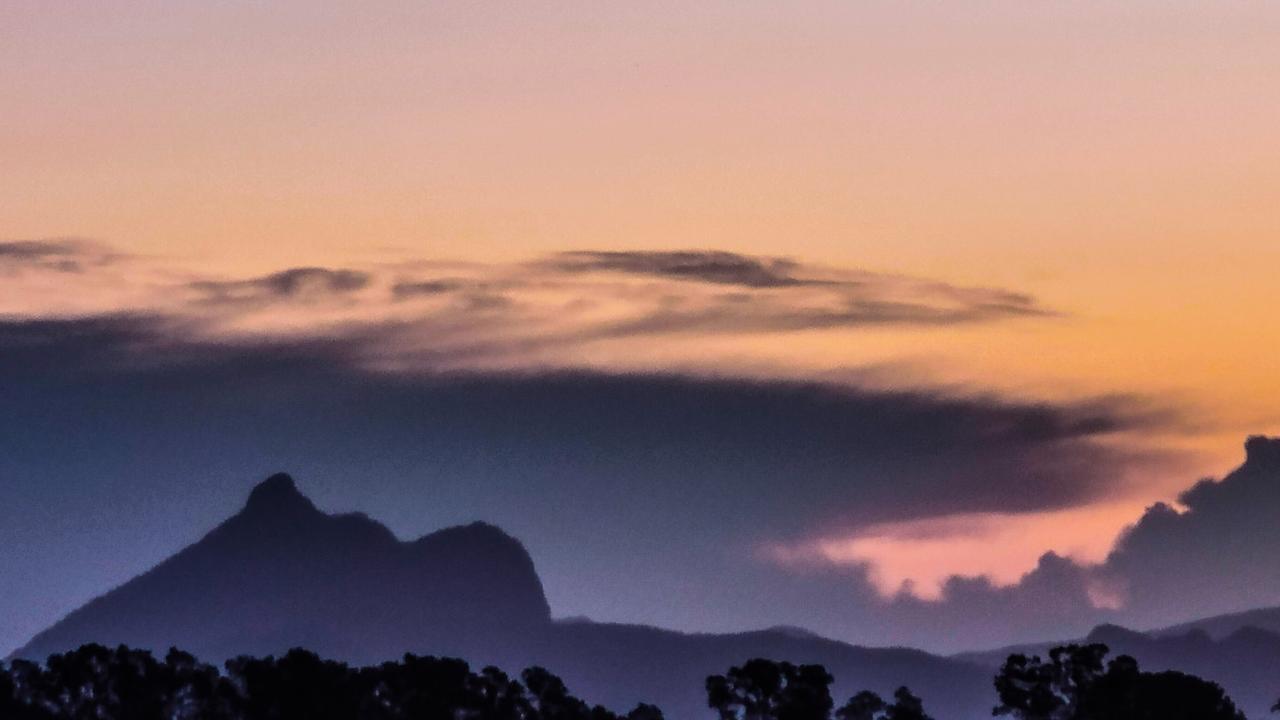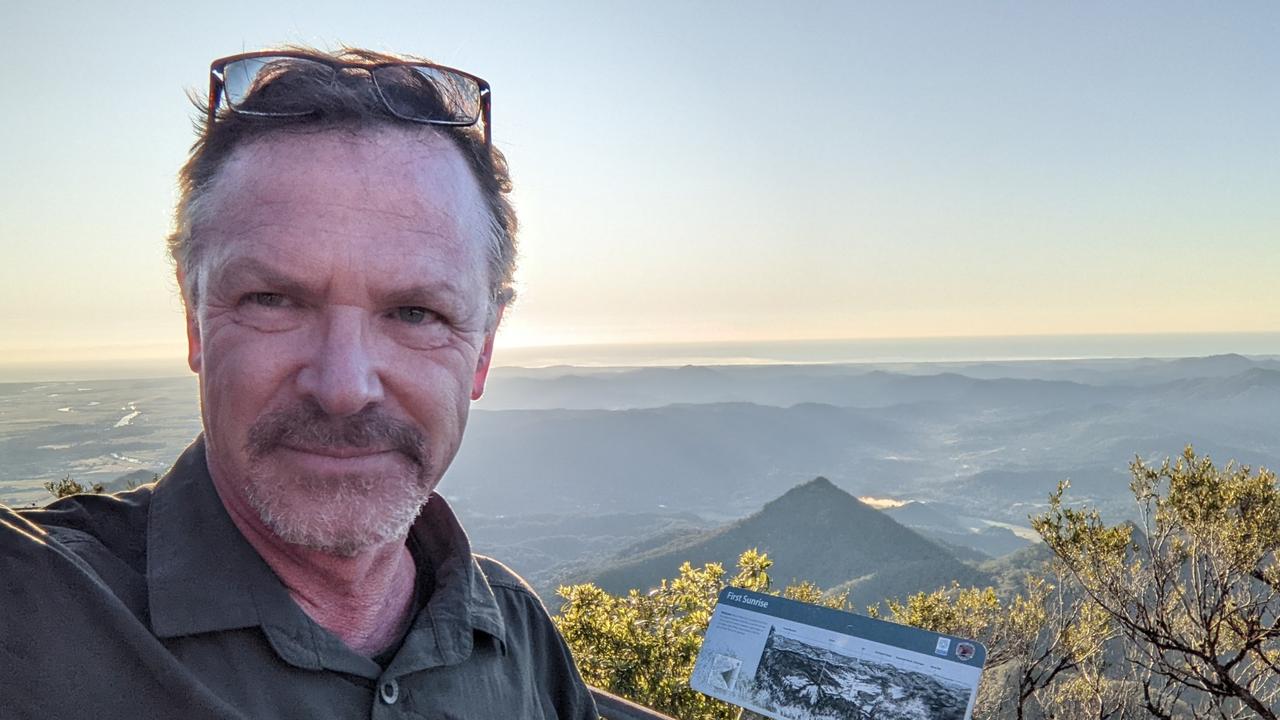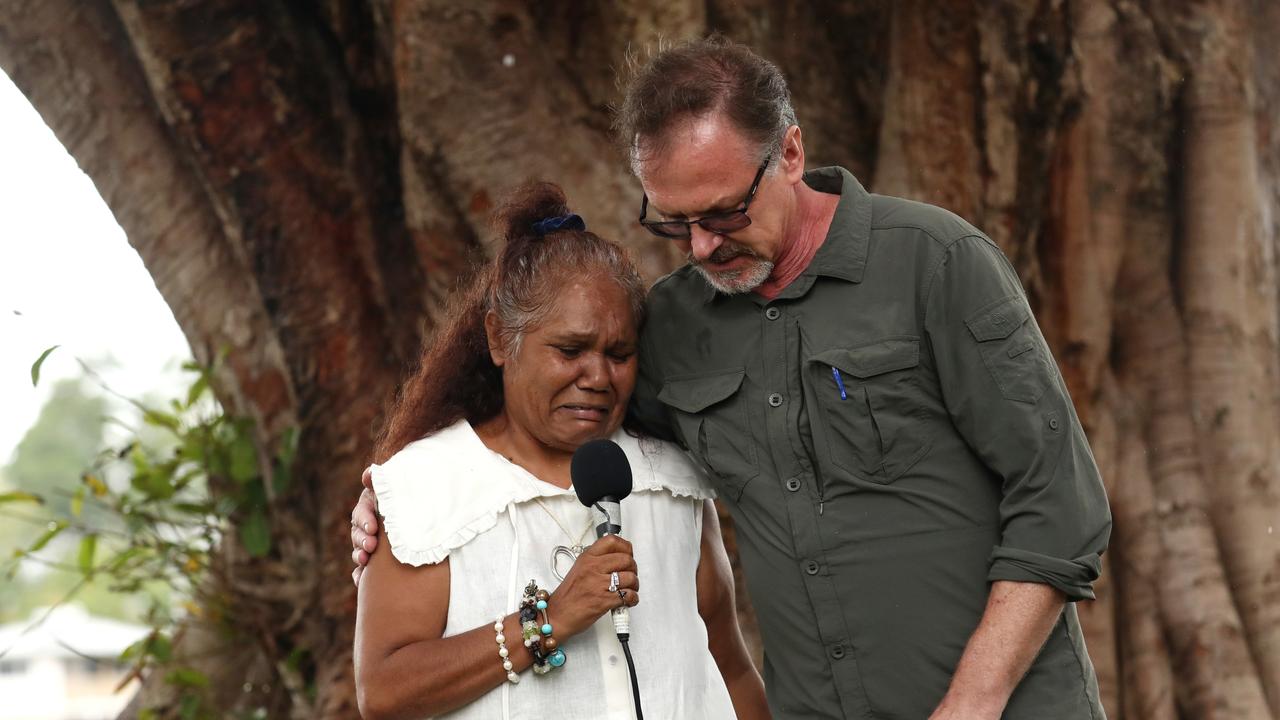Wollumbin Mount Warning reaches unwanted milestone as track closure continues
Its controversial closure has been the subject of intense debate and now Wollumbin/ Mount Warning has hit a major milestone which not everyone is celebrating.
QLD News
Don't miss out on the headlines from QLD News. Followed categories will be added to My News.
One of Australia’s most popular hiking trails has now been “temporarily” off limits to the public for more than five years with the stalemate costing the tourism industry an estimated $75 million. The economic impact to the tourist industry is on top of an eye-watering security bill of more than $100,000 to station security guards at the mountain’s parking lot for several months to deter climbers in 2023.
The Tweed Valley’s Mount Warning summit trail, also known as Wollumbin in a local Aboriginal dialect, closed due to social distancing concerns during the early days of the coronavirus pandemic in March 2020, with a multitude of reasons and excuses since delivered as to why the closure has now dragged past the five-year mark.
Hiking enthusiasts and lobby groups have long feared the mountain trail will become “the next Uluru” amid moves by a mysterious Aboriginal stakeholder outfit known as the Wollumbin Consultative Group to establish permanent access restrictions to the site.

Data from the Save Our Summits body estimates the loss of earnings for local hotels, campgrounds, restaurants and other hospitality businesses at $15m each year.
In December, the NSW National Parks and Wildlife Service announced an extension of the “temporary” closure until December 31 “to allow additional time for careful consideration of the site’s future”.
Save Our Summits President Marc Hendrickx said more sites around the country were under threat and many nature enthusiasts were fighting to keep them open.
Mr Hendrickx recently uncovered details of a plan to ban climbing at the Sunshine Coast’s Mount Beerwah discussed at a departmental level during the previous Labor government - which were quickly quashed by new Tourism and Environment Minister Andrew Powell.
“The fight to reopen the mountain (Wollumbin) continues and the number of people now involved has expanded,” said Mr Hendrickx.
“Loss of public access to national parks across the country; at Arapiles and the Grampians in Victoria, Lake Eyre in South Australia, Ayers Rock, and potential closures in the Glass House Mountains and other places has galvanised a national movement.”
The impact of these closures across the country to recreational groups including hikers, climbers, bike riders and campers will be subject of a national access conference to be held in Canberra later in the year.
“This will provide a powerful National lobby group to pressure governments to keep our parks in public hands and ensure they are open to everyone,” said Mr Hendrickx.

Wollumbin holds special significance for local Aboriginal tribes, but different tribes have different views on how that significance should be administered.
The Wollumbin Consultative Group has advocated for summit access to be restricted to local tribal men only, while members of the Ngarakbal community, long considered the traditional custodians of the mountain, have openly backed calls for it to be reopened to the public.
The National Parks and Wildlife Service has also established a Wollumbin Stakeholder Advisory Committee which has held several meetings about future management of the site.
More Coverage







